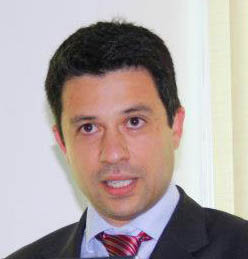 The increase in working hours in the Public Administration from 35 to 40 hours a week came into force in Portugal on September 28, 2013. Since then, Courts, Unions, Government, Local Authorities, Associations, Political Parties and Society in general have discussed and debated this matter, with agreements, setbacks and legal and economic disagreements. I stick to the economic discussion of the measure.
The increase in working hours in the Public Administration from 35 to 40 hours a week came into force in Portugal on September 28, 2013. Since then, Courts, Unions, Government, Local Authorities, Associations, Political Parties and Society in general have discussed and debated this matter, with agreements, setbacks and legal and economic disagreements. I stick to the economic discussion of the measure.
One of the justifications for this measure has to do with the objective of reducing expenses, due to the increase in working time.
This cost reduction orientation is defined as a competitiveness strategy. In this type of strategy, unilateral decisions predominate and the participation of those involved tends to take the form of negotiation of consequences, as reported during the negotiation through collective agreements between the Unions and the Local Authorities.
At this point, I quote Anna Coote, head of the social policy department at New Economic Foundation (a British 'think thank'): "You have to look at the economy as a whole, not just from a financial point of view."
Other justifications and the most mentioned have to do with increases in the productivity of public services. This is where I will focus most of my opinion piece.
Productivity, as a concept, has to do with the fact that more is produced in the same amount of time without harming the quality of the product, thus measuring the company's performance.
First, the problem is identified, that is, the needs to be achieved, then there is the waste, ie, the resources used for this purpose: the time used, the people, the quality of the processes, and finally, it applies the adjustments and the respective corrections.
Now, if we talk so much about reducing waste, why don't we measure performance in Public Administration? Perhaps because of a lack of political will or perhaps because it is difficult to measure this same performance? An unequivocal truth: the goods and services provided by the Public Administration do not have a market price. That is to say, if we were to compare it with the private, the Public Administration would appear as a destroyer of value.
Even so, it is generally accepted that the services provided by the Public Administration have some value; and it is for this reason that we must focus on how to measure that productivity. Because the Public Administration only provides service, instead of measuring the value of the product, the cost of the product is measured. Instead of measuring income, you measure expenses.
In this sense, companies like the Public Administration must demonstrate people's productivity. In this sector exclusively of services, and despite the sensitivity of wages to productivity having a strong component, the truth is that the low productivity of people also does not depend so much on their inadequacy, but depends fundamentally and in many cases, on other types of expenses, such as the degree of efficiency of the technological means and the level of organization of the company.
For this reason, I believe that the solution and alternative in Public Administration is not first through a strategy of increasing working time, without any measurement of its impact, but mainly through the improvement of organizational performance, through the self-assessment carried out based on the model of excellence in business management, created by the European Foundation for Quality Management (EFQM).
I propose that this model be integrated into the anthropocentric strategy (inspired by the socio-technical approach) that bets on the integration of advanced technologies, qualified human resources and decentralized and participatory organizations.
Productivity is not improved by the mere publication of pieces of legislation. It is not because of the increase to 40 hours per week in Public Administration that we have improved the management of this same Administration.
Management must be guided by issues such as the ability to attract, recruit and retain the best professionals; how to motivate them, properly train them, how to balance their personal and professional lives and how to carry them out professionally.
Author Pedro Pimpão
Doctoral Student in Management at ISEG, University of Lisbon
Degree in Economics from the University of Algarve
President of the Regional Delegation of the Algarve of the Order of Economists
NOTE: Article published under the established protocol between the Sul Informação and the Algarve Regional Delegation of Order of Economists.


















Comments